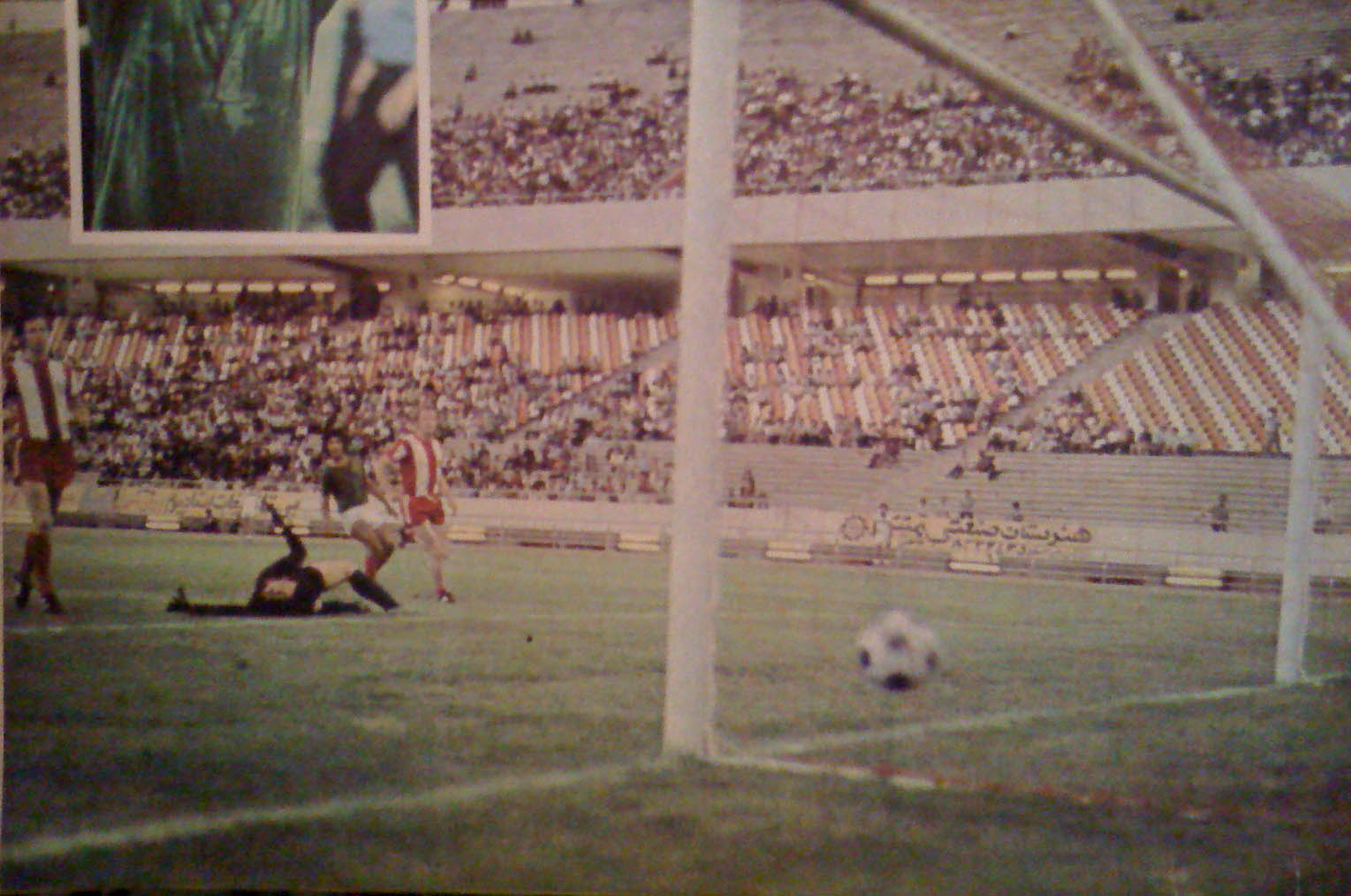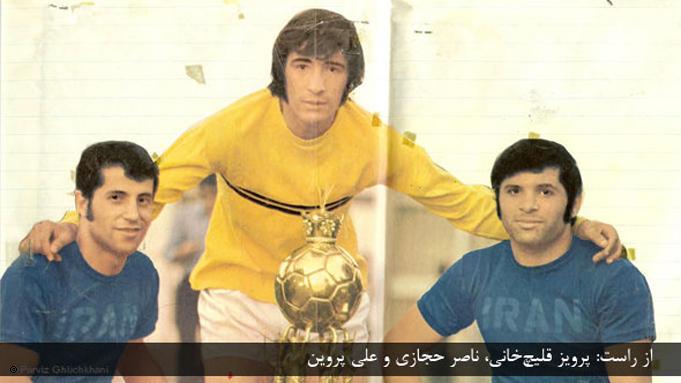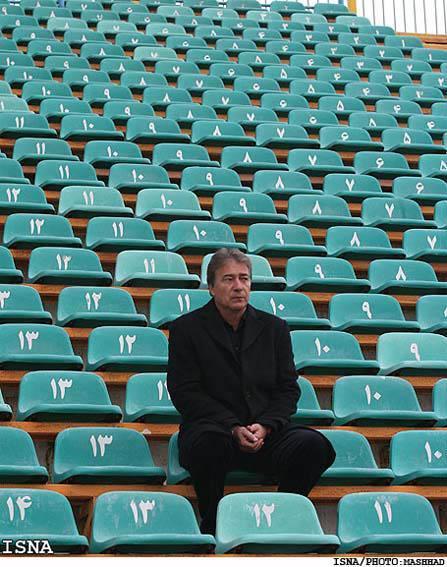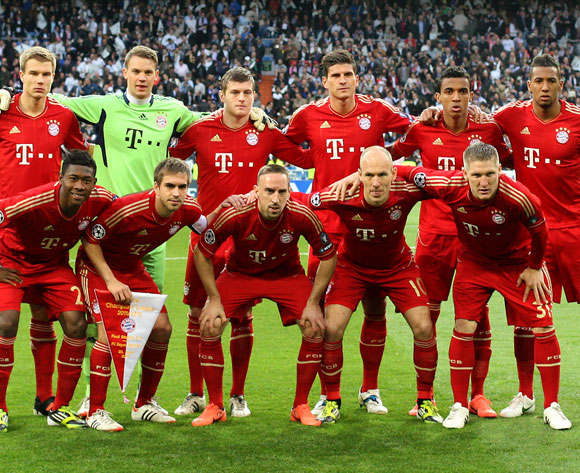For those of us football fans awaiting the UEFA Champions League final in less than 7 hours, I came across this article on Yahoo Sports.
Yahoo Article
Copy-paste below, if the above link does not work.
http://sports.yahoo.com/news/soccer--champions-league-finalist-bayern-munich-finally-embracing-its-anti-nazi-past-163605448.html
An amazing historical fact. A must-read for all. Really, a pre-game reading requirement today. I had new idea Nazis had brought down Bayern Munich football club because the club included Germans who happened to be of the Jewish faith.
So I asked myself what is the legacy of a club? What is the purpose of football? We (you know who I am talking about) still play football every week. What is our understanding of sweating for 90 minutes in our weekly games – be it for championship or for recreational purposes?

Mohammad Sadeghi scoring against Bayern Munich in Terhan - 1972
The above story reminded me of our own Iranian football heroes. We have so many of them to ponder about. For example, I had sardar (in English, Kaiser) Ghelich as a guest with my football friends a month ago. He said he didn't not wish to be remembered as a great -- although we kept telling him he was THE greatest -- player of all time. He has in the past that he wants to be remembered as a human being because of his deeds and contributions to humanity. He reminded us “Jahan Pahlavan Takhti is respected for his moral and ethical values, not just for his godl and silver medals in the world wrestling championships.
Another example in my mind is the late Nasser Hejazi. To me he is always Nasser khan. That's how I remember calling him when I was a teenager. Did you know we just passed his second anniversary some days ago?

Nasser Hejazi, Ali Parvin, and Parviz Ghelichkhani, Circa 1972
Who was he? Was he the greatest goalkeeper of all time or a human being who to the last minute did not succumb to selling his soul to the lackeys operating within the Iranian regime? No wonder in one television interview sardar Ghelich reminded the audience that while we ought to appreciate Nasser Hejazi for his superb goalkeeping skills, but “most importantly I remember him for his moral and ethical values and standings.” Yes, we should remember him as to what he taught the Iranian generations about the true meaning of a human being. Football is a tool; football is a means; football is a vehicle for us to become a human. Become as in “be” and “come.” It simply implies that we cannot press a button and just be. We have to exercise our moral values and “become.”
I can relate to Parviz Ghelichkhani's comment about the honorable Nasser Hejazi. I remember seeing video clips of crowds of Iranians, who had rushed to the streets of the hospital where Hejazi died just few minutes after the news of his passing broke out. I remember the special memorial held at the giant Azadi Stadium for him. The people who attended these vents didn't salute the late Hejazi, because he saved so many goals when he defended Team Melli's goal, or in particular his single-highhandedly saving Iran in 1972 from losing a devastating 0-5 defeat against the host North Korea in capital Pyongyang. No, the Iranians memorialized Nasser Hejazi, because he had lived a life of demonstrating his principles in the Iranian society. He taught us that football meant living a life. That football was not, and is not, just a gladiatorial competition.

Naser Hejazi -- Alone but proud
Oh yes, let me remind that he loved to play for Manchester United football club in England. To the last minute, he spoke of misfortunes of the Iranian revolution for having stolen the opportunity from him to become the goalkeeper for this super prestigious British club. So, don't think that he was a non-profit kind of footballer who didn't like to play for one of the best football clubs in the world then in 1978. He dreamed of playing for now called ManU, but he also never lost sight of the realities in Iran – who he was and who was in charge in post-revolution era. Hejazi never budged to political establishment and the football authorities, who were prepared to provide whatever he wanted, only if he would sell out. Or, at times he was in charge of managing a club or the national team, if he realized that he was no longer independent in his management and he felt his principles were to be compromised, he resigned from his post, while publicly protesting the interventionists and expressing his views. Those of us who closely followed Hejazi's life and his hardships knew well that he paid a heavy price to keep owning his principles. And we are not just a few. Eventually, the nation learned.
On a personal encounter, when two times I went to a local restaurant to meet Parviz Ghelichkhani, I saw a man who had his laptop on and was working hard to meet print deadline for his magazine. The passion and desire I saw in working on his magazine, which many of us might easily dismiss as waste of time and money, I have not seen in so many companies I have worked in the past 30 years. As I indicated, he prefers to be remembered as Parviz Ghelichkhani, the publisher of a magazine that aims to inform Iranians about those aspects of life that he is so passionate to share.
Back to Bayern Munich football club. The story of the club during dark years of Hitler's Nazi regime that I read in the above-referenced article reminded me of one example of the resilience of those honorable and true custodians of a football club that preserved the very existence of their Jewish workers, players and managers -- the very persons the Nazis tried so hard to erase from the pages of German history. The Nazis basically wanted to revise the history of humanity.

Bayern Munich FC
It is interesting to me that the article indicates that it is only in recent years that club CEO Karl-Heinz Rummenigge is becoming brave enough to resurface that proud history of the revolutionaries in the club in 1930s and 40s. So, Rummenigge and Germans want to salute those citizens, not because they were part of a skilled football club or managed to acquire the best footballers of Germany, but because they stood up to tyranny. They understood football as a tool for building friendship, for team work, for respect of their teammates, and for honoring their humanness. They did not want their lives to be defined based on religion and football skills and by the ruling Nazi regime. As the article indicated, they too paid a heavy price. Many of them were killed or sanitized by the Nazi machinery. Some survived and rebuilt Bayern Munich club.
And that's the way it's about one proud history in football on this early morning of the UEFA Champions League final.
Oh, my prediction: Bayern Munich 3 - Borussia Dortmund 2









Great piece! I was rooting for Dortmund but Bayern derved the victory.
felt bad for the losing squad.
Even though the bayern seemed to be making great offensive moves ( i only caught the last 30 minutes) i was amazed by Dortmund's defense and the opportunities they took away from The munchens!!